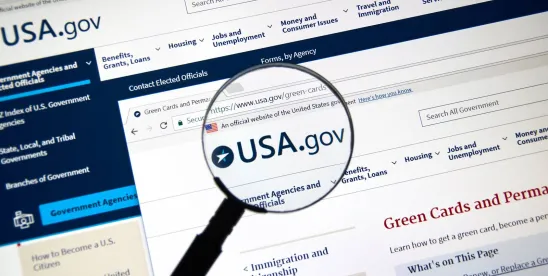Business
New U.S. Visa Bond Program to Challenge Business Travel from Malawi, Zambia

The U.S. Department of State has announced a new pilot program that will require certain nationals to post financial bonds before obtaining B-1/B-2 visitor visas. Set to launch on August 20, 2025, this initiative is likely to create significant challenges for business travel, particularly for individuals from Malawi and Zambia.
The program, which was published in the Federal Register on August 5, 2025, mandates that applicants from these countries must deposit bonds ranging from $5,000 to $15,000. The exact amount will be determined at the discretion of consular officers, with the aim of deterring overstays and enhancing immigration enforcement.
Visa Bond Program Details and Requirements
Initially, the program will apply only to Malawi and Zambia, but the Department of State has the authority to expand this requirement to additional countries with just 15 days’ notice. The bonds are intended to serve as a financial guarantee, reflecting the government’s effort to impose fiscal responsibility on visa holders. The bond amounts were calculated based on the estimated $17,121 cost of immigration enforcement per individual, underscoring the serious approach the U.S. is taking towards visa compliance.
Beyond financial requirements, the program imposes logistical limitations that may complicate business travel. Travelers must enter and exit the United States through designated airports: Boston Logan International Airport, John F. Kennedy International Airport, or Washington Dulles International Airport. Additionally, visas will be valid for single entry within three months of issuance, and U.S. Customs and Border Protection (CBP) officers will restrict admission to a maximum of 30 days. These restrictions may necessitate significant adjustments to travel planning for businesses.
Implications for Employers and Future Expansion
Employers with business interests in Malawi and Zambia should proactively assess their travel policies and employee needs. They are encouraged to monitor updates from the Department of State regarding the program and evaluate current travel patterns, particularly from countries known for high overstay rates. Considering alternative meeting formats, such as virtual meetings or third-country locations, may also be prudent.
The program’s criteria for selecting countries are based on three key factors: high visa overstay rates, insufficient screening and vetting information, and the existence of citizenship-by-investment programs that do not require residency. These criteria suggest that other countries with similar profiles may soon be added to the program.
The operational complexities of the visa bond program involve coordination between the U.S. Department of State, the Treasury, and the Department of Homeland Security (DHS). As this pilot initiative progresses, the feasibility of broader application will be assessed. The introduction of the Arrival and Departure Information System (ADIS) to track compliance may also present challenges, including potential errors that could lead to bond forfeiture for compliant travelers.
The pilot program will run from August 20, 2025, to August 5, 2026. During this time, the U.S. government aims to evaluate its effectiveness as a diplomatic tool to encourage foreign governments to improve their immigration systems and address overstay rates. Given the potential for expansion, businesses should prepare for broader implications and adapt their strategies accordingly.
In conclusion, while the initial impact of this visa bond program will be limited to travelers from Malawi and Zambia, it may set a precedent for future business travel regulations. Companies have a short window of 15 days to adjust their plans and prepare for these new requirements, which could introduce both financial and operational hurdles. As immigration policies continue to evolve, remaining informed and adaptable will be essential for businesses navigating this changing landscape.
-

 Lifestyle5 months ago
Lifestyle5 months agoLibraries Challenge Rising E-Book Costs Amid Growing Demand
-

 Sports4 months ago
Sports4 months agoTyreek Hill Responds to Tua Tagovailoa’s Comments on Team Dynamics
-

 Sports5 months ago
Sports5 months agoLiverpool Secures Agreement to Sign Young Striker Will Wright
-

 Lifestyle5 months ago
Lifestyle5 months agoSave Your Split Tomatoes: Expert Tips for Gardeners
-

 Lifestyle5 months ago
Lifestyle5 months agoPrincess Beatrice’s Daughter Athena Joins Siblings at London Parade
-

 Science4 months ago
Science4 months agoSan Francisco Hosts Unique Contest to Identify “Performative Males”
-

 World4 months ago
World4 months agoWinter Storms Lash New South Wales with Snow, Flood Risks
-

 Science5 months ago
Science5 months agoTrump Administration Moves to Repeal Key Climate Regulation
-

 Business5 months ago
Business5 months agoSoFi Technologies Shares Slip 2% Following Insider Stock Sale
-

 Science5 months ago
Science5 months agoNew Tool Reveals Link Between Horse Coat Condition and Parasites
-

 Sports5 months ago
Sports5 months agoElon Musk Sculpture Travels From Utah to Yosemite National Park
-

 Science5 months ago
Science5 months agoNew Study Confirms Humans Transported Stonehenge Bluestones









